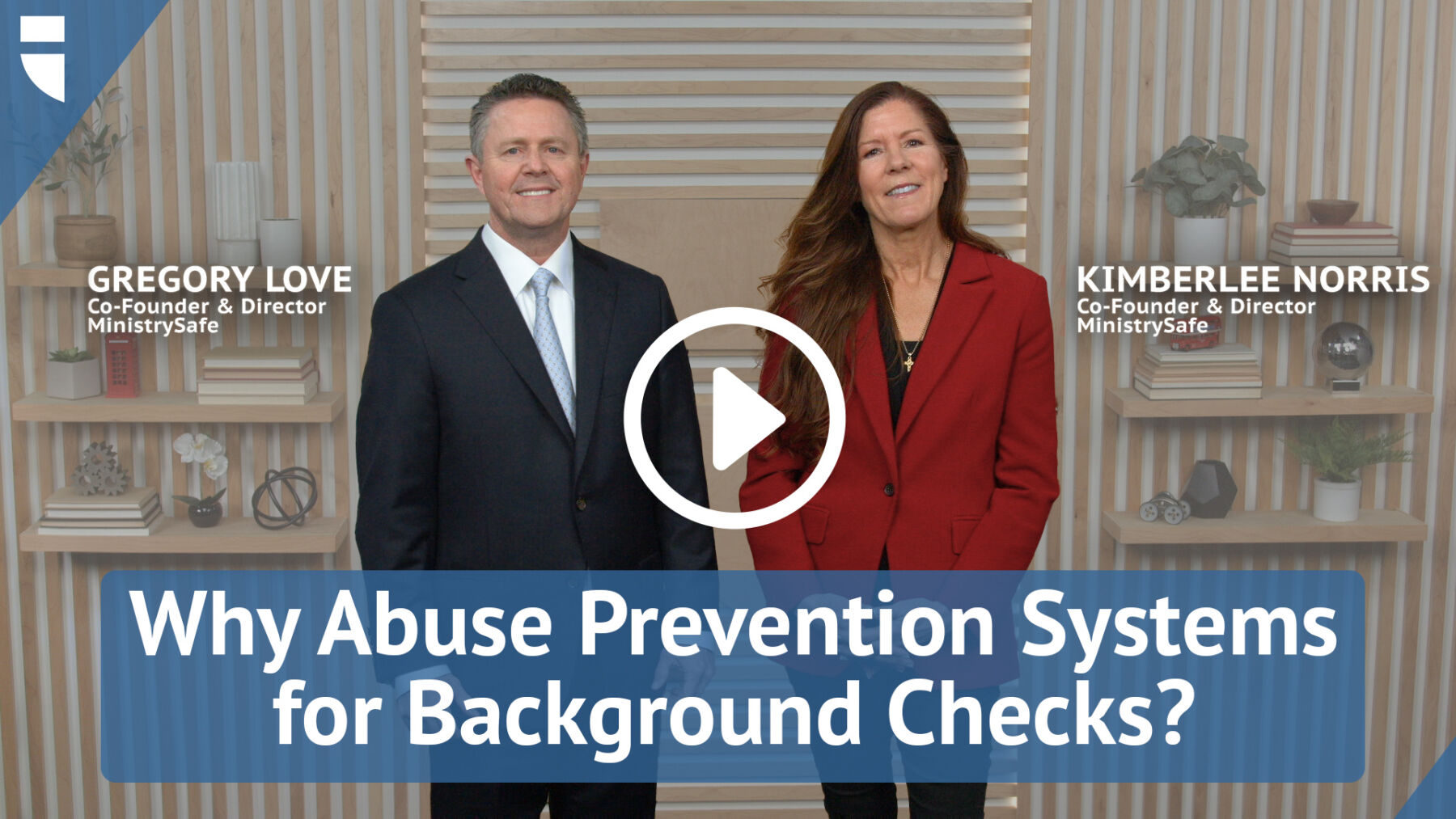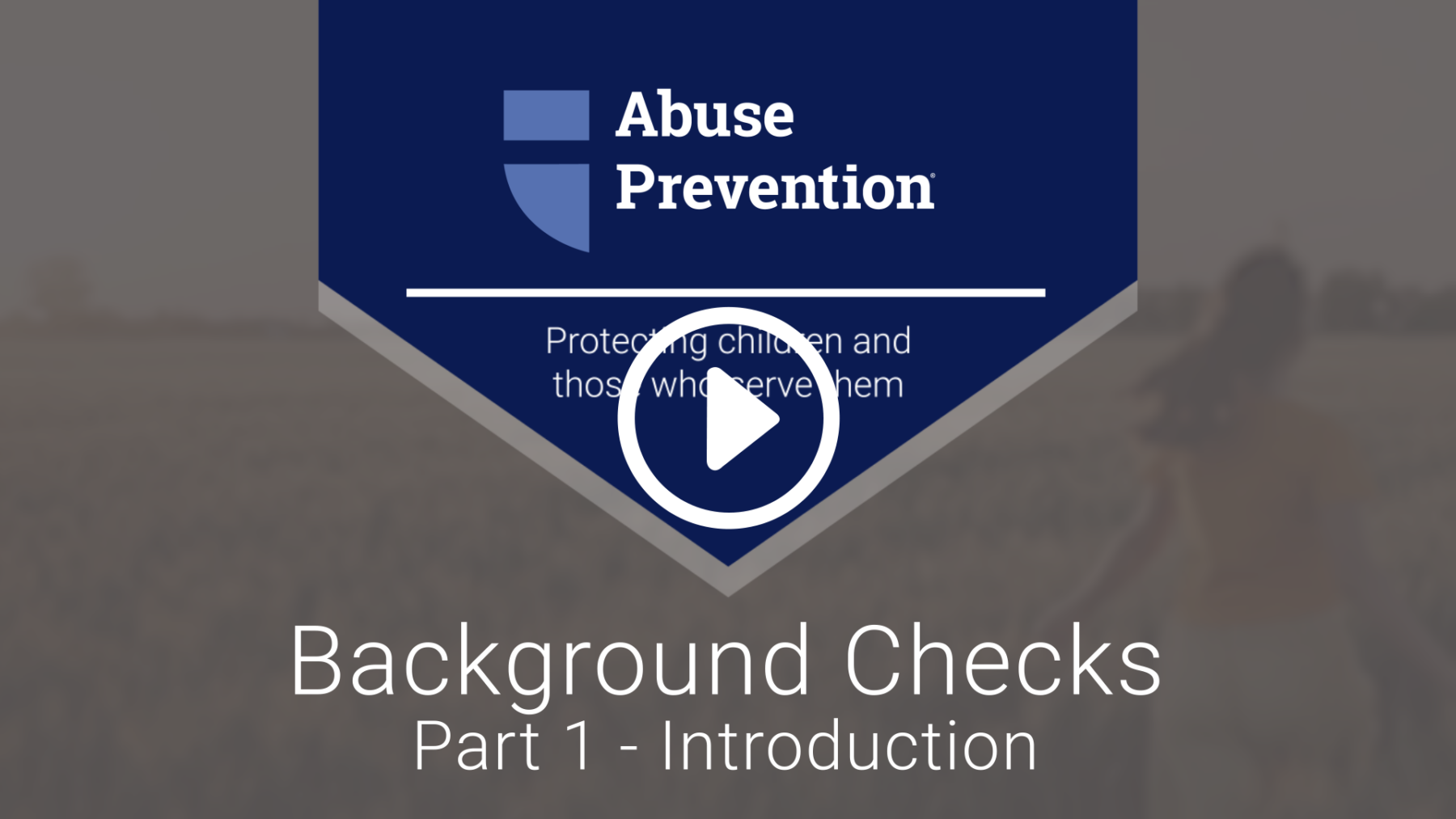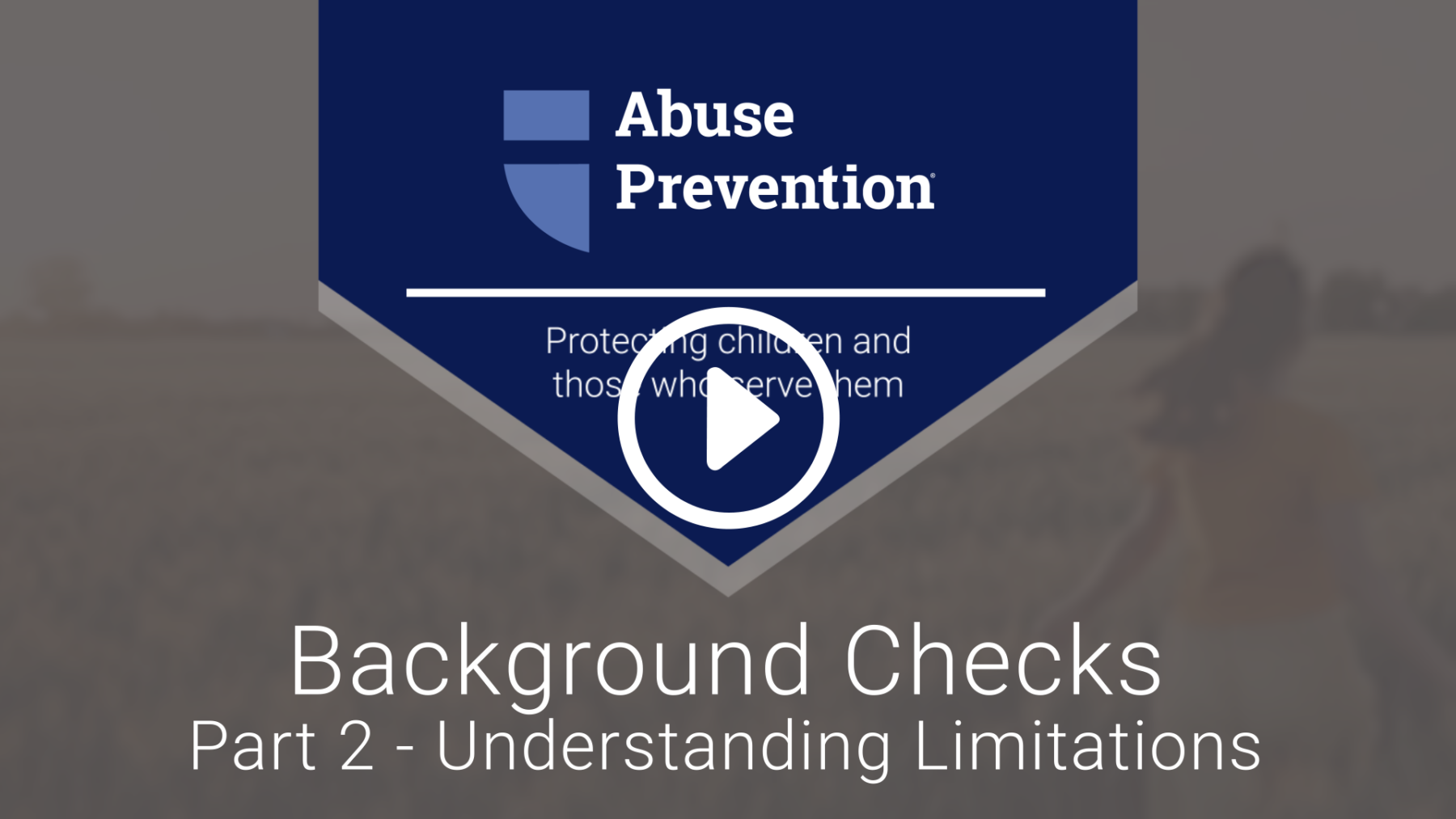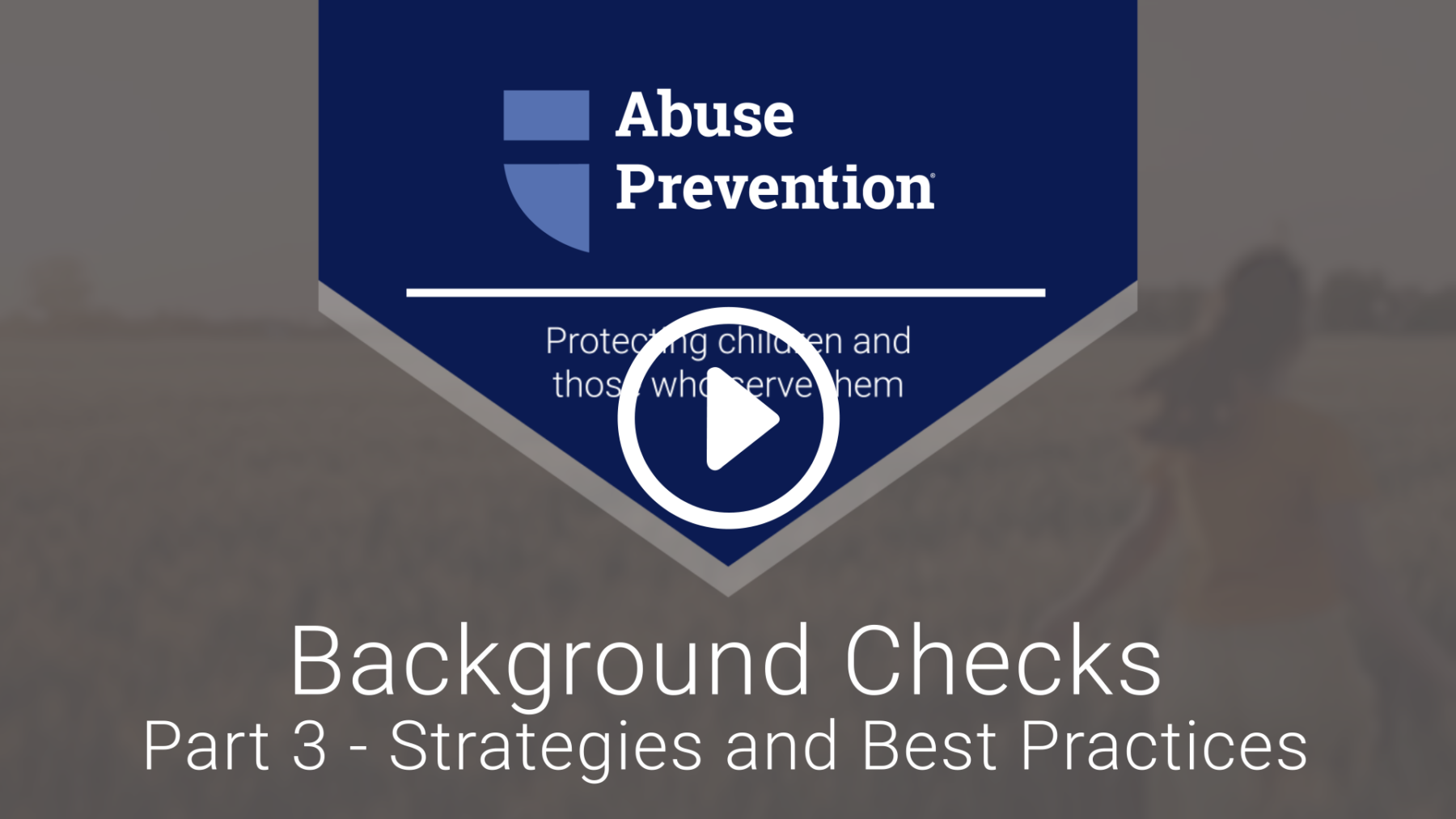Understanding Background Checks
The Background Check is no 'silver bullet', but provides an important element of the 5-Part Safety System, and is required for meeting any program's 'Standard of Care'. For effective use, a functional understanding of the process is essential.
Background Check STRATEGY

What is a Background Check?
ONE Part of the Safety System
Applicable Legislation
Sexual Abuse & Criminal System
Common Misconceptions
Other Vendors Cutting Corners
MinistrySafe/APS Searches
STRATEGY
Best Practices
 5PSS Button
5PSS Button
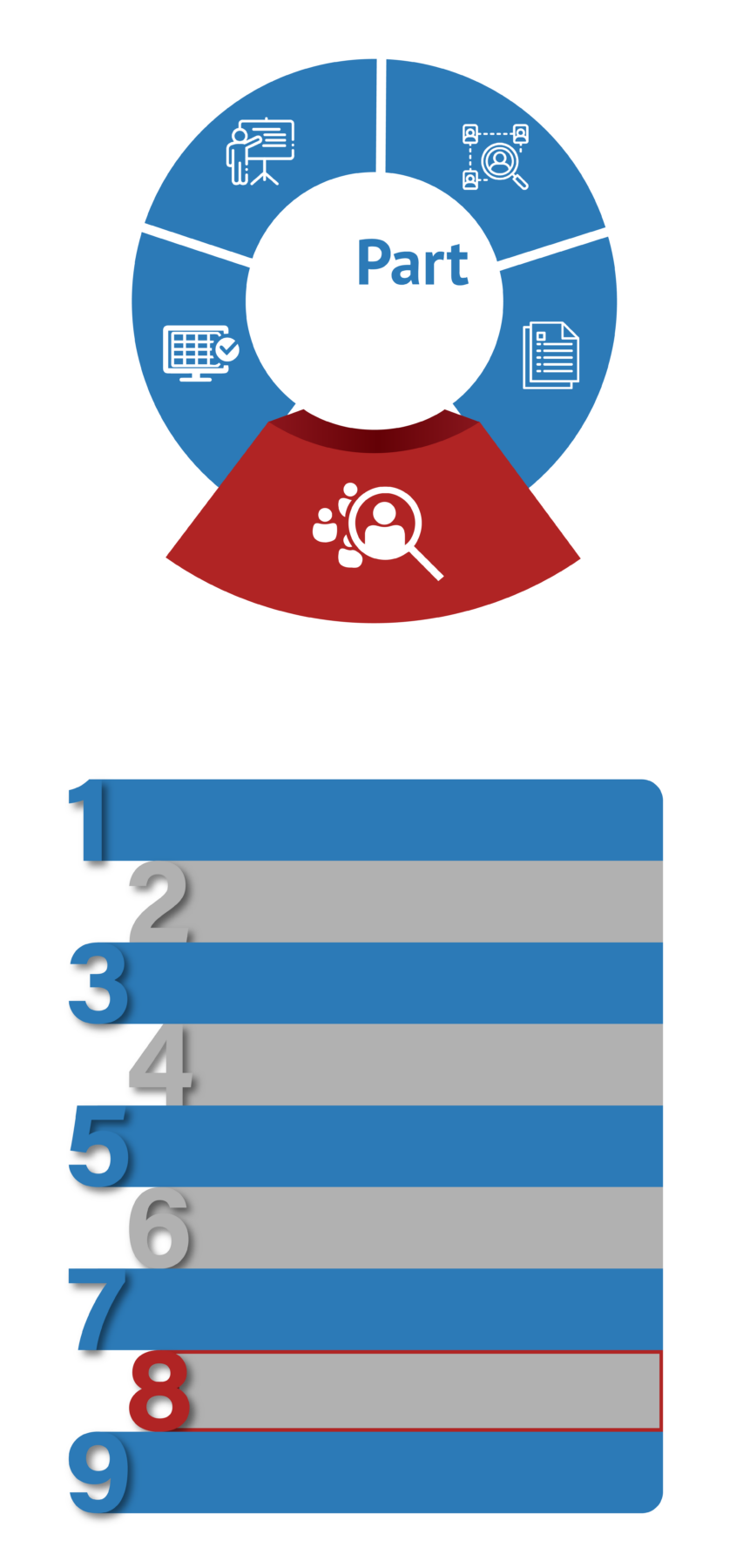
What is a Background Check?
ONE Part of the Safety System
Applicable Legislation
Sexual Abuse & Criminal System
Common Misconceptions
Other Vendors Cutting Corners
MinistrySafe/APS Searches
STRATEGY
Best Practices
 5PSS Button
5PSS Button

What is a Background Check?
ONE Part of the Safety System
Applicable Legislation
Sexual Abuse & Criminal System
Common Misconceptions
Other Vendors Cutting Corners
MinistrySafe/APS Searches
STRATEGY
Best Practices
 5PSS Button
5PSS Button
Background Checks Video Training
Background Checks
Video Training
Related Resources

Background Checks Information

Helpful Articles
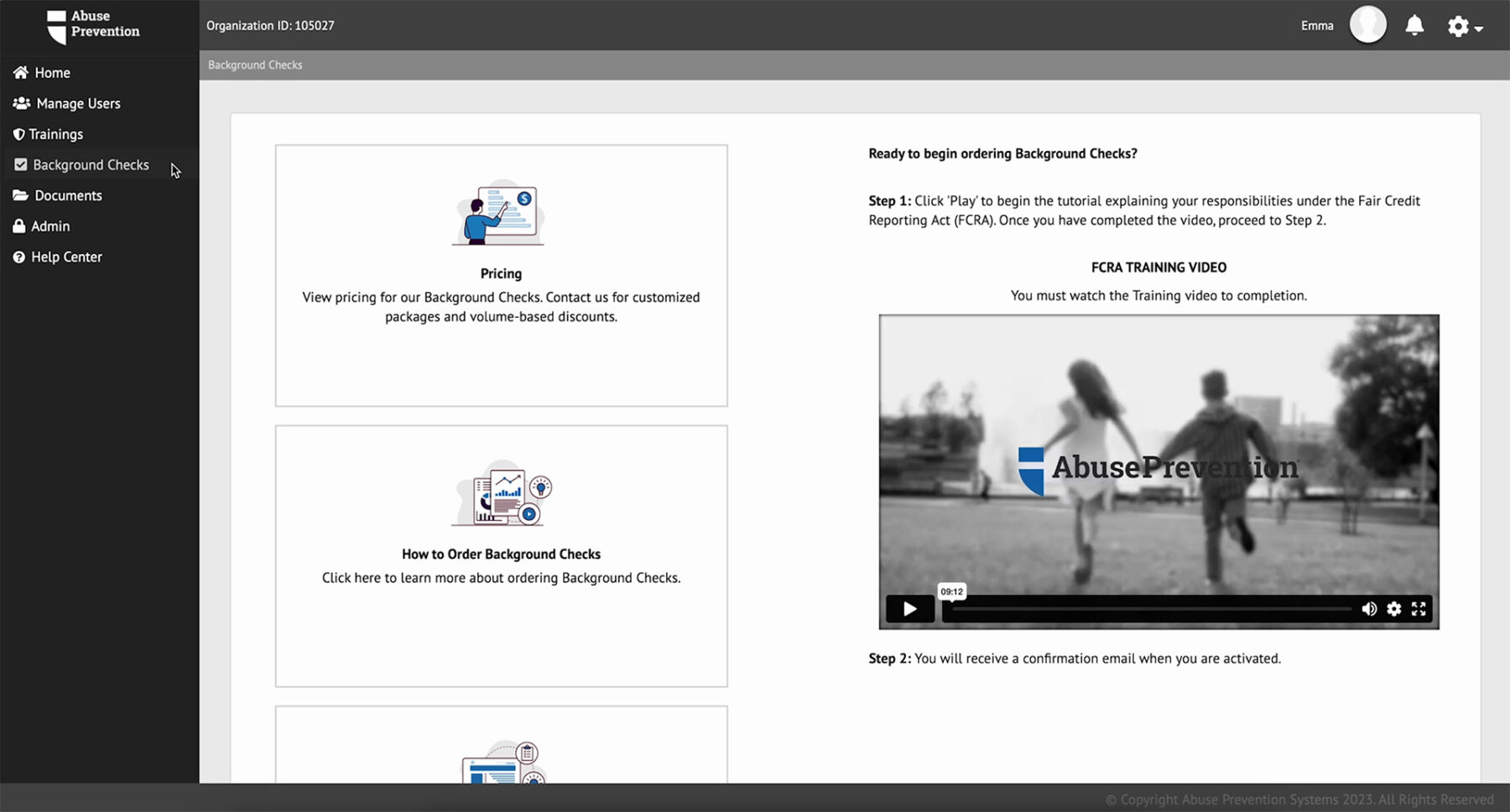
Video Demos
Related Resources

Background Checks Information

Helpful Articles

Video Demos
FREQUENTLY ASKED QUESTIONS


